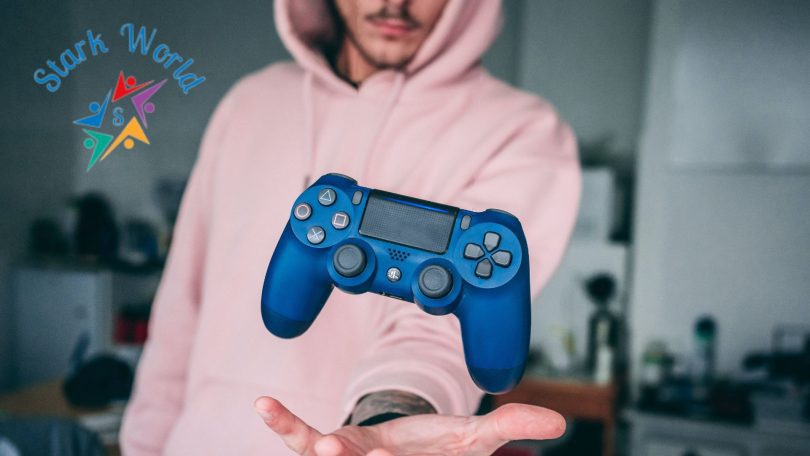The world of professional gaming, or eSports, is a vibrant, fast-paced, and highly competitive environment. It’s a fascinating realm where skills, strategy, and reflexes are just as important as in any other sport. But what exactly does it mean to be a professional gamer?
Definition of a Professional Gamer
A professional gamer is someone who earns their primary income from playing video games competitively. This doesn’t just mean playing games for fun or casually; professional gamers compete at the highest level in global tournaments, often representing a team or a sponsor. They dedicate significant time to practice, strategy development, and game analysis, much like professional athletes in traditional sports.
Benefits of Becoming a Professional Gamer
Turning a hobby into a full-time career can be incredibly rewarding. Besides earning money doing something you love, being a professional gamer also opens doors to a variety of opportunities. These include sponsorships, partnerships with gaming companies, and the chance to travel internationally for tournaments. Moreover, as a pro gamer, you get to be part of an exciting, evolving industry, with the added benefit of gaining recognition and respect from a vast community of gaming enthusiasts.
Steps to Becoming a Professional Gamer
Becoming a professional gamer requires more than just talent; it demands dedication, patience, and strategic planning. If you’re feeling lost, don’t worry. I have a step-by-step guide that will help you navigate through this journey with ease:
Step 1: Choose Your Game
Having a clear focus is crucial in professional gaming. Your choice of game will determine the skills you need to hone, the community you’ll interact with, and the tournaments you can participate in.
Research Popular Games in the Professional Gaming Scene
Explore various genres to see which ones resonate with you, and consider the popularity and competitive scene of potential games. Some of the biggest eSports games include League of Legends, Dota 2 Counter-Strike: Global Offensive, and Fortnite. These games have massive followings, large prize pools, and numerous tournaments.
Determine Which Game(s) You Enjoy and Excel At
While popularity is important, it’s equally crucial to choose a game that you genuinely enjoy and have a knack for. Success in professional gaming requires countless hours of practice, and that becomes easier if you’re passionate about the game you’re playing.
Step 2: Practice, Practice, Practice
Once you’ve chosen your game, it’s time to hone your skills. Remember, even naturally talented players need to practice regularly to stay at the top of their game.
Set a Regular Practice Schedule
Treat gaming like a job. Set aside specific hours each day for practice, and stick to this schedule. Consistent practice helps improve reflexes, understanding of game mechanics, and strategic decision-making abilities.
Utilize Training Resources and Tools
There are plenty of resources available to help you improve. Many games have training modes or tutorials, and websites like YouTube or Twitch offer countless gameplay videos and strategy guides from experienced players. Using these resources can help you learn new techniques and strategies.
Analyze and Learn from Your Gameplay
Don’t just play, learn from your gameplay. It is important to review your games to identify any mistakes you might have made and to find areas for improvement. This allows you to continuously improve your skills and become a better player. Many games have replay features that allow you to analyze your performance from different perspectives.
Step 3: Join or Create a Team
Most professional gamers are part of a team. Being in a team allows you to learn from others, share strategies, and participate in team-based tournaments.
Research and Join Existing Gaming Teams
Many established teams are always on the lookout for new talent. If you can prove your skills, they might be interested in recruiting you. Joining an existing team also means benefiting from their experience and resources.
If Necessary, Create Your Team with Like-Minded Players
If you can’t find a suitable team, consider creating your own. Find players who share your dedication and passion. Starting your team can be challenging, but it also allows you to shape your gaming journey according to your vision.
Step 4: Participate in Tournaments and Competitions
To make a name for yourself in the gaming community, you need to compete. Tournaments provide exposure, experience, and sometimes, monetary rewards.
Start with Local or Online Tournaments
Begin with smaller, local, or online tournaments. These can help you gain experience and confidence without the pressure of big stakes. Plus, they’re excellent places to get noticed by larger teams and sponsors.
Gradually Work Your Way Up to Larger, More Prestigious Events
As your skills and confidence grow, start aiming for higher-level competitions. These tournaments usually have larger audiences, bigger prize pools, and the chance to compete against top-tier players.
Step 5: Build Your Brand and Network
Apart from your gaming skills, how you present yourself to the world can also influence your professional gaming career. Building a personal brand and networking can open up new opportunities.
Create an Online Presence on Platforms like Twitch and YouTube
Platforms like Twitch and YouTube are popular among gamers. They not only provide a platform to showcase your skills but also allow you to engage with your fans. Regular streaming or posting of game-related content can help build a dedicated follower base.
Attend Gaming Conventions and Events to Meet Industry Professionals
Gaming conventions, expos, and tournaments are great places to network. You can meet industry professionals, other gamers, and potential sponsors. Making connections can lead to collaborations, sponsorships, and even job opportunities.
Collaborate with Other Gamers and Content Creators
Collaboration is a powerful tool for growth. Working with other gamers and content creators can help you reach a wider audience, learn new strategies, and gain valuable insights. Look for opportunities to collaborate on streams, videos, or even joint projects to expand your reach and showcase your skills.
Step 6: Stay Focused, Dedicated, and Consistent
Becoming a professional gamer requires immense dedication and consistency. Here are some tips:
- Set goals: define short-term and long-term goals for yourself and work towards achieving them.
- Practice regularly. Consistent practice is crucial for skill improvement. Dedicate daily time to hone abilities.
- Stay updated: Keep up with the latest trends, updates, and strategies in the gaming community. This will help you stay competitive and adapt to changes.
- Stay motivated: Surround yourself with like-minded individuals who share your passion and drive. They can provide support, encouragement, and motivation when you need it.
Step 7: Seek Opportunities for Growth and Development
The gaming industry is constantly evolving, so it’s essential to seek opportunities for growth and development. Here are a few ways to continue progressing:
- Attend workshops and seminars. Look for educational events or workshops that focus on gaming techniques, strategies, and industry insights.
- It’s a good idea to join online communities. You can participate in forums, gaming groups, and social media communities. These platforms provide opportunities to learn from others, ask questions, and share knowledge.
- Stay open to learning: Be receptive to feedback and always strive to improve. Learn from your mistakes, analyze your gameplay, and seek advice from experienced players.
Final
Becoming a professional gamer requires hard work, perseverance, and a genuine love for gaming. By following these steps, you can increase your chances of turning your passion into a successful career.






